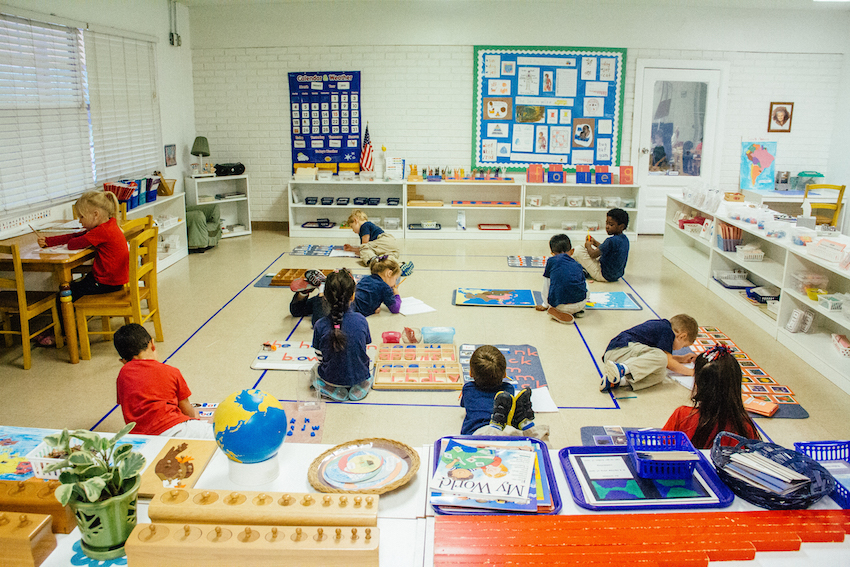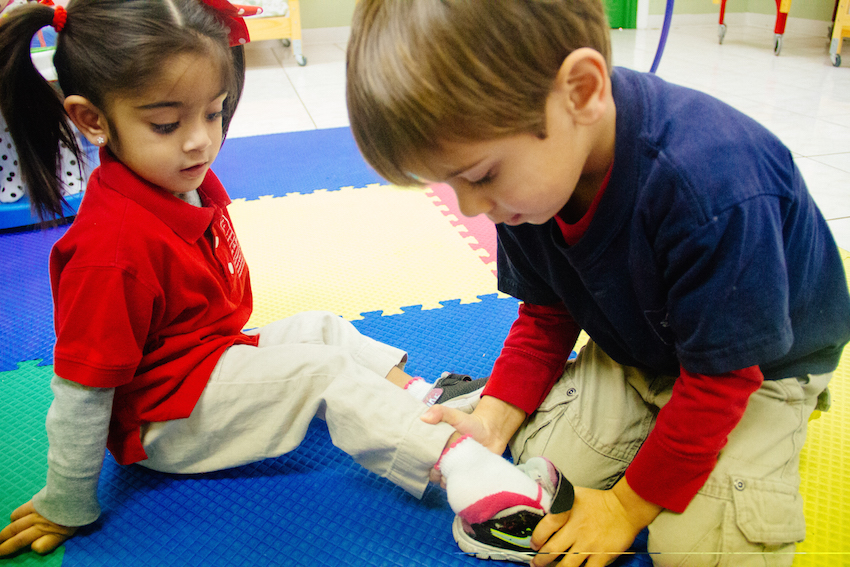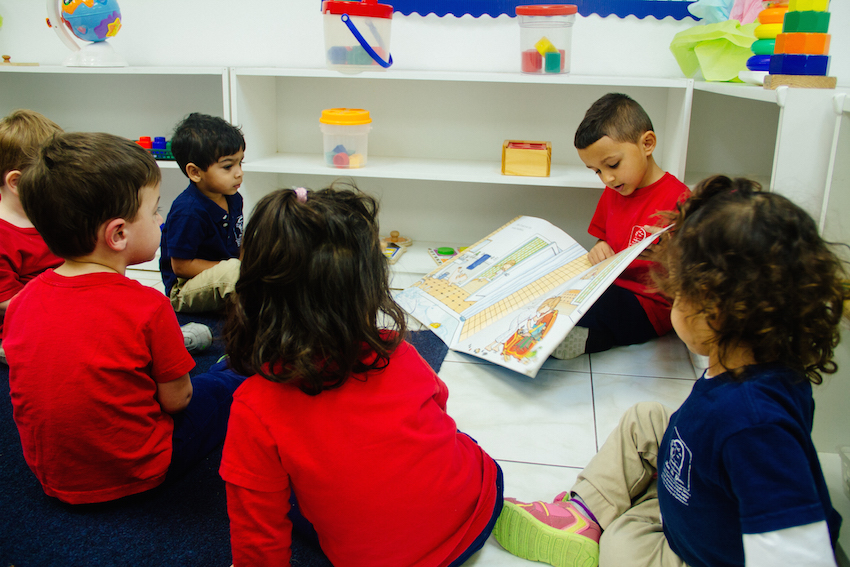“The environment must be rich in motives which lend interest to activity and invite the child to conduct his own experiences.” ~Maria Montessori

| Montessori Schools | Traditional Schools |
| Emphasis on cognitive and social development | Emphasis on rote learning and social behavior |
| Teacher as a guiding role | Teacher as a controlling role |
| Environment and method encourage self-discipline | Teacher acts a primary enforcer of discipline |
| Mainly individual instruction | Mainly group instruction |
| Mixed age groups; reduction of competition | Same age groups; higher atmosphere of competition |
| Grouping encourages children to teach and collaborate | Teaching is done solely by teacher; collaboration is discouraged |
| Child chooses own work | Curriculum is structured for child |
| Child discovers own concepts from self-teaching materials | Child is taught concepts by teacher |
| Child is allocated time to work on and complete lesson | Child is generally allotted specific time for work |
| Child sets own learning pace | Instruction pace set by group/curriculum |
| Child recognizes own errors from feedback of material | Errors in child’s work highlighted by teacher |
| Child reinforces own learning by repetition of work and internal feelings of success | Learning is reinforced externally by repetition, rewards, and punishments |
| Child can work where he chooses, moves about and talks at will (yet, not disturbing work of others), group work voluntary | Child usually assigned a seat; required to participate during group lessons |
| Multi-sensory materials for physical exploration organizes program for learning care of self and environment | No organized program for self-care instruction – left primarily up to the parents |

